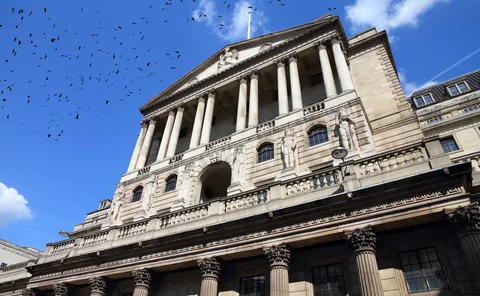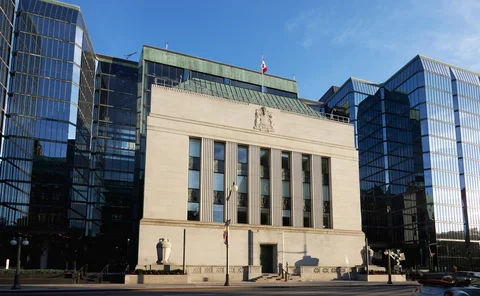Economic modelling
Hiking rates before asset sales may constrict credit – paper
Kansas City Fed research says raising the fed funds rate first may cause yield curve inversion
Dallas Fed predicts 2022 core inflation above 2%
Economists expect auto and transportation costs to abate, but spike in housing prices
BIS paper outlines model of managed floats
Framework captures financial frictions while being simpler than other models, authors say
Pandemic Treasuries market calmed quickly – research
Dallas Fed analysis finds “headwinds” early on, but not lasting pandemic disruptions
BoE paper builds GDP-at-risk model
Authors generate “fat-tailed” distribution to explore economy’s tendency to hit lower bound on rates
Economists win prize for agent-based forecast model
Authors say theirs is the first agent-based model to produce competitive economic forecasts
Financial sector still a headache for central bank modellers
Macro-financial links are difficult to integrate into key models, with progress since the global financial crisis slow. But some central banks are making breakthroughs
Biden stimulus will not move inflation much – Chicago Fed paper
Research finds most models predict very limited and short-term increases
‘Bottom-up’ approach can improve inflation forecasts – BoE paper
Item-level inflation data contains useful information for forecasting, authors find
Newspaper text can improve growth forecasts – DNB research
Sentiment index can cut errors in short-term forecasts, study finds
Fed paper finds ways to boost forecast performance
Adding extra information can help make forecasts more accurate and robust, authors say
Paper examines US pensions’ effects on natural rate
Welfare effects of possible reforms depends on productivity growth, Bank of Italy paper finds
Adding QE can fix New Keynesian models – BoE paper
“Mild adjustments” to balance sheet are enough to avoid paradoxical results, authors find
Central banks look to shockproof models in wake of Covid-19
The Covid-19 crisis caused many central bank models to break down. Economists at the St Louis Fed, Bank of Spain and ECB were quick to innovate and say they will continue testing new tools
Epidemics cause delayed political unrest – IMF paper
Infectious disease outbreaks lead to upheaval after health crisis has passed, researchers say
More capital could increase lending during pandemic – paper
Philadelphia Fed research finds capital injections and lower requirements would both increase lending
BoE paper explores macroeconomic impact of macro-pru
Authors build DSGE model featuring “detailed banking sector” and sticky interest rates
Paper lays groundwork for Canadian ‘Hank’ model
Author estimates “earnings process” as step towards heterogeneous agent modelling
Central banks are using biased estimates of pass-through – BIS paper
Standard measures exchange rate pass-through fail to account for market power, researcher argues
Modellers should not exclude pandemic-era data – ECB paper
Excluding pandemic data from time series would “vastly underestimate uncertainty”, authors argue
Fed paper: market power can cause inequality and instability
Market power can explain a lot of recent undesirable “secular trends”, authors say; redistribution could have macro-prudential benefits
Growth has replaced slack in Phillips curve relationship – Cleveland Fed paper
Findings could have “substantial disinflationary” implications during current recession, researchers say
Economists race to merge epidemiology and macro
Promising results are emerging, but workable forecasts may be some way off
BoE paper argues for heterogeneous agent modelling
Authors use heterogeneous agent model to study fiscal policy and redistribution






















